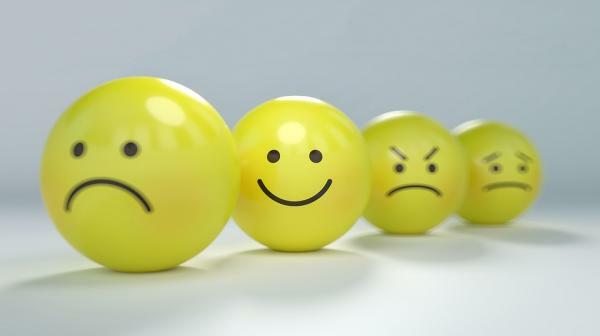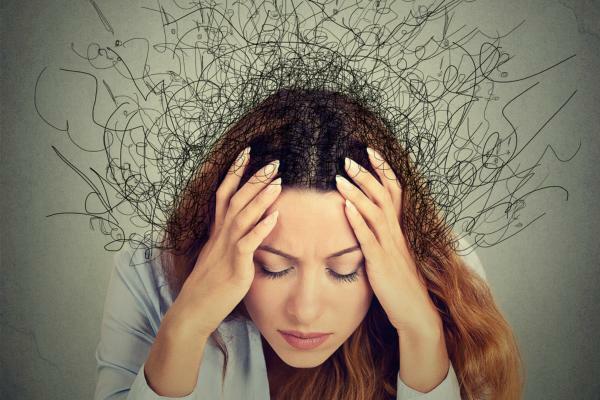
Positive psychology is a modern line of psychology whose purpose is to find and cultivate the genius and talent, and make normal life more satisfying, not just work with the disturbances mental. This area is dedicated to improving, not replacing, current psychology. The goal is to use the scientific method to determine why things are going well.
Positive psychologists address four themes: positive experiences, enduring psychological traits, positive relationships, and positive institutions. In this PsychologyOnline article, we explain what is Positive Psychology.
Index
- How it arises and who is the father of Positive Psychology
- Areas of Positive Psychology
- Happiness
- Creativity
- Flow / Flow
- Resilience / Hardiness
- Optimism
- Humor
- Emotional intelligence
- Personal strengths
How it arises and who is the father of Positive Psychology.
The term originates with Maslow, in his book Motivation and Personality. Since 1950, everything seems to indicate that psychologists have been more focused on mental illness than on promoting mental health.
The term "positive psychology" has been developed by Martin Seligman. Seligman proposes to psychologists to continue the previous missions of psychology of fostering talent and improving normal life. The first summit on positive psychology was held in 1999. The First International Conference on Positive Psychology was held in 2002. The general public began to pay more attention to this orientation from 2006, when it became more popular. In June 2009, the first World Congress of Positive Psychology took place.
Positive psychology has its origins in the 20th century humanistic psychology, which was largely focused on happiness and fulfillment. It has as previous influences antecedents philosophy and religion (Judaism promotes a theory of divine command of happiness: happiness and rewards are derived from following the commandments of the divine. Socrates, among other philosophers, defended self-knowledge as the way to happiness).

Areas of Positive Psychology.
- Happiness
- Creativity
- Flow / flow
- Resilience / hardiness
- Optimism
- Humor
- Emotional intelligence
- Personal strengths
Happiness.
Happiness is made up of small pleasant moments lived. Happiness is a moment of subjective satisfaction, it has been conceived as a purpose or an end, as a ideal state of well-being and stable to achieve.
Creativity.
Potential to do, to produce different and valuable things. It is the ability of a brain to reach new conclusions and solve problems in an original way. It is a skill that can be learned.
- Related variables: Intelligence, Intrinsic motivation, Self-esteem.
- Features: Flexibility, Fluidity, Originality, Elaboration (Level of detail).

Flow / Flow.
Developed by the psychologist Mihalyi Csikszentmihalyi, who has defined it as a state in which the person is completely absorbed in an activity for their own pleasure and enjoyment, during which time flies and actions, thoughts and movements follow one another without pause. The person uses her skills and abilities taking them to the extreme. According Mihalyi Csikszentmihalyi there are seven flow conditions:
- Sense of ecstasy, of being out of everyday reality.
- Inner clarity, knowing what to do and how well it is going.
- Knowing the activity is doable, that the skills are adequate, and anxious or bored.
- Sense of serenity, does not worry about himself, feeling of growing beyond the limits of the ego. Ego feeling that transcends in ways you did not think possible.
- Opportunity, fully focused on today, do not notice the passage of time.
- Intrinsic motivation, what produces the "flow" becomes its own reward.
Resilience / Hardiness.
The ability of a person or group to face fatalities, overcome them and emerge stronger from the experience. Could be analog of personal strength, how a person recovers from bad incidents and even manages them to improve the present and future of her.
Optimism.
Dispositional personality trait that intervenes between external events and personal interpretation of them.
It is the predisposition to believe that the future holds favorable achievements. Optimism is the value that helps us face difficulties with good courage and perseverance, discovering the positive that have the people and circumstances, trusting in our abilities and possibilities along with the help we can receive.

Humor.
Children laugh an average of 300 times a day. An adult does it between fifteen and one hundred. Laughter is a powerful healing tool, reduces tension, stress, aggressiveness and depression. Releases endorphins ("happiness" hormone). Develop creative thinking and communication skills. Improves quality of life. A good laugh strengthens the body's immune system and reduces hormones that can cause stress.
Emotional intelligence
It is the ability of the human being to experience, express, and control their own emotions, in addition to being able to understand the emotions of others. Predict his happiness.
Personal strengths.
According to Seligman (2003), strengths and virtues act as a barrier against misfortune and psychological disorders and can be the key to increasing resilience:
- Wisdom and knowledge: creativity, curiosity, open-mindedness, love of learning, perspective, innovation.
- Courage: courage, perseverance, integrity, vitality. Humanity and love: love, kindness, social intelligence.
- Justice: citizenship, justice, leadership.
- Temperance: forgiveness and mercy, humility, prudence, self-control.
- Transcendence: appreciation of beauty and excellence, gratitude, hope, humor, spirituality.

This article is merely informative, in Psychology-Online we do not have the power to make a diagnosis or recommend a treatment. We invite you to go to a psychologist to treat your particular case.
If you want to read more articles similar to Positive Psychology: definition and authors, we recommend that you enter our category of Social psychology.
Bibliography
- http://en.wikipedia.org/wiki/Positive_psychology#Theory
- http://www.slideshare.net/Llana/psicolologia-positiva-presentation
- http://www.slideshare.net/catalinautpl/psicologiapospdf
- http://www.slideshare.net/marissa122880/psicologia-positiva-8835829


